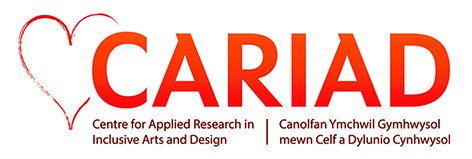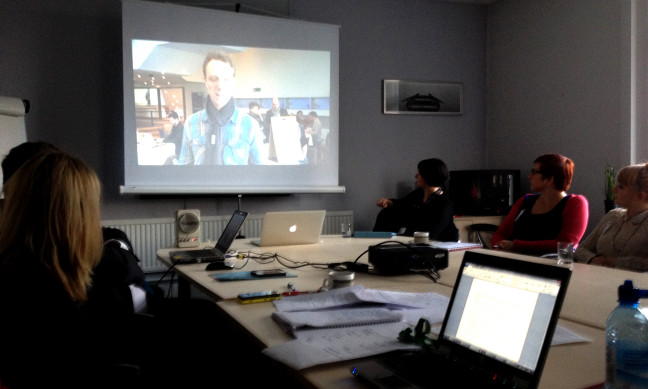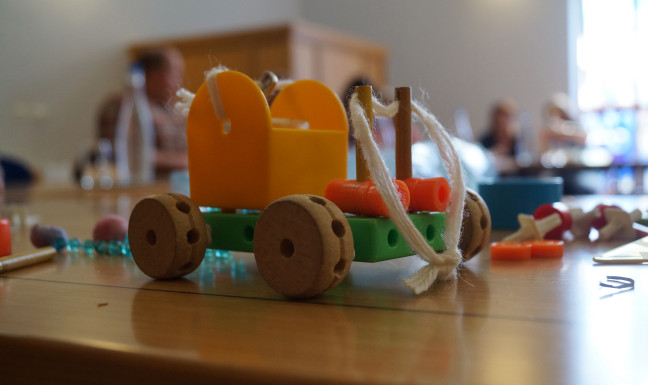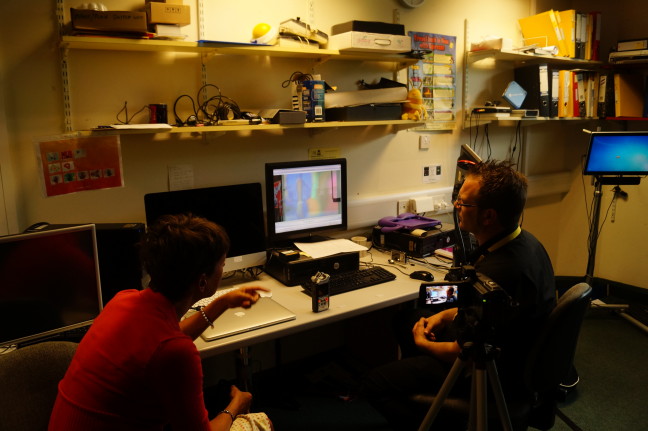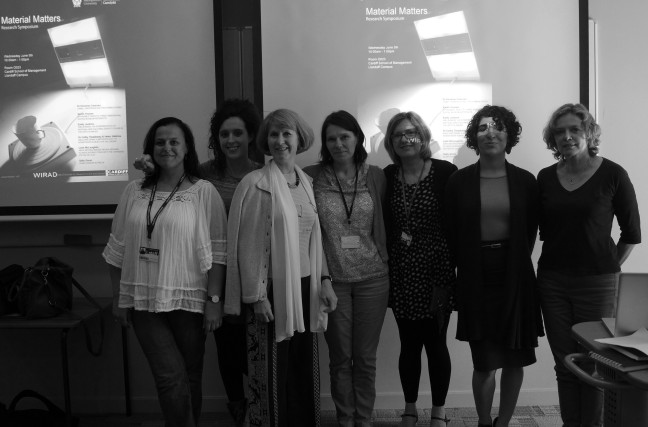CARIAD had a very informative meeting with Anthony and Janet at Trinity fields School today. We met to watch videos of the children interacting with Somantics http://somantics.org/. Anthony is already undertaking pioneering work founding the PLC in Gesture-Based Technology group which is already having a huge impact in Schools in Wales. Take a look! http://kinectsen.wikispaces.com/ http://opensen.wordpress.com/2012/12/02/kinectsen-plc-exploring-gesture-based-technologies/
http://www.trinityfieldsschoolandresourcecentre.co.uk/news/firstgesturebasedtechnologymeeting.htm
We showed some edited clips (the videos were also shot by the teachers) of the children exploring Somantics and asked the teachers to comment on what they saw. Key to the sessions was the teachers comfort to interpret the videos in their own time on their own terms without intervention or judgements. In this way the interpretations were able to flow without any pressure to provide ‘positive’ or ‘negative’ responses. The teacher’s perspectives, knowing each child’s personality and engagement profile provided essential contextual information of the ways the interactive apps are improving communication and well-being.
The sessions were also recorded on video (video link when ready) and this proved essential to capture the thick data sets which emerged and appear to be growing. This ranged from the entirely nuanced facial expressions of the teachers, happy to see the children engaging at such a high level, to explaining that a child saying ‘Orange’ in expectation of the next colour on the painting app, was the child’s first ever independent comment on the world. Other key factors were the children’s general behaviour and contentment at the times of filming which impacted upon understandings of their levels of engagement with the apps.
The sessions highlighted the levels and details of information contained in each small clip (which was no more than two minutes each) and the time necessary to spend deconstructing the data from filming the child, to editing and modes of analysis. This indicates that the videoing processes might facilitate some of the methods related to understanding young people with autism by slowing down and taking the time to understand with the children are telling us. CARIAD is looking forward to our next meeting on the 19th September 2013.
